Jean Francois Lyotard Livres
- François Laborde
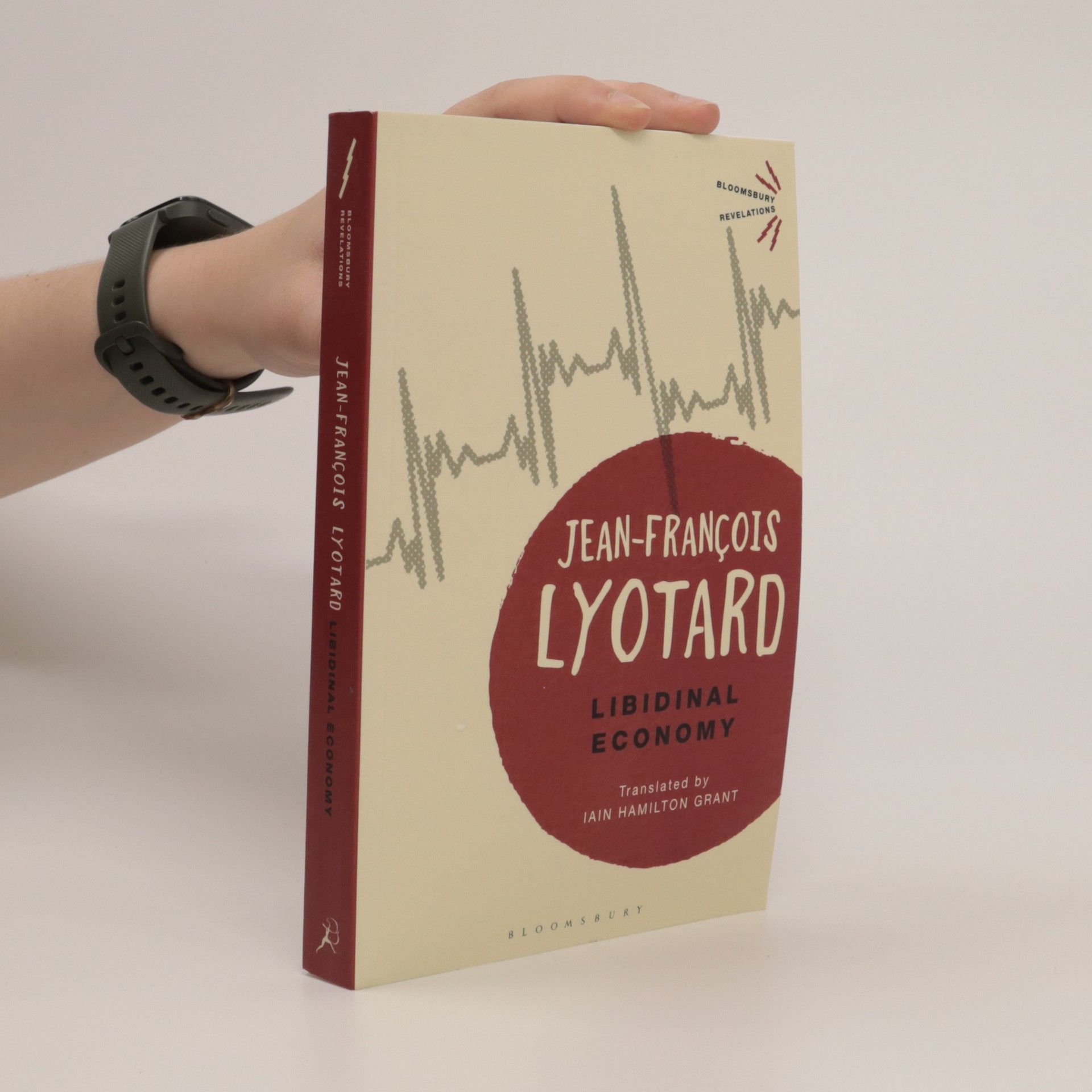
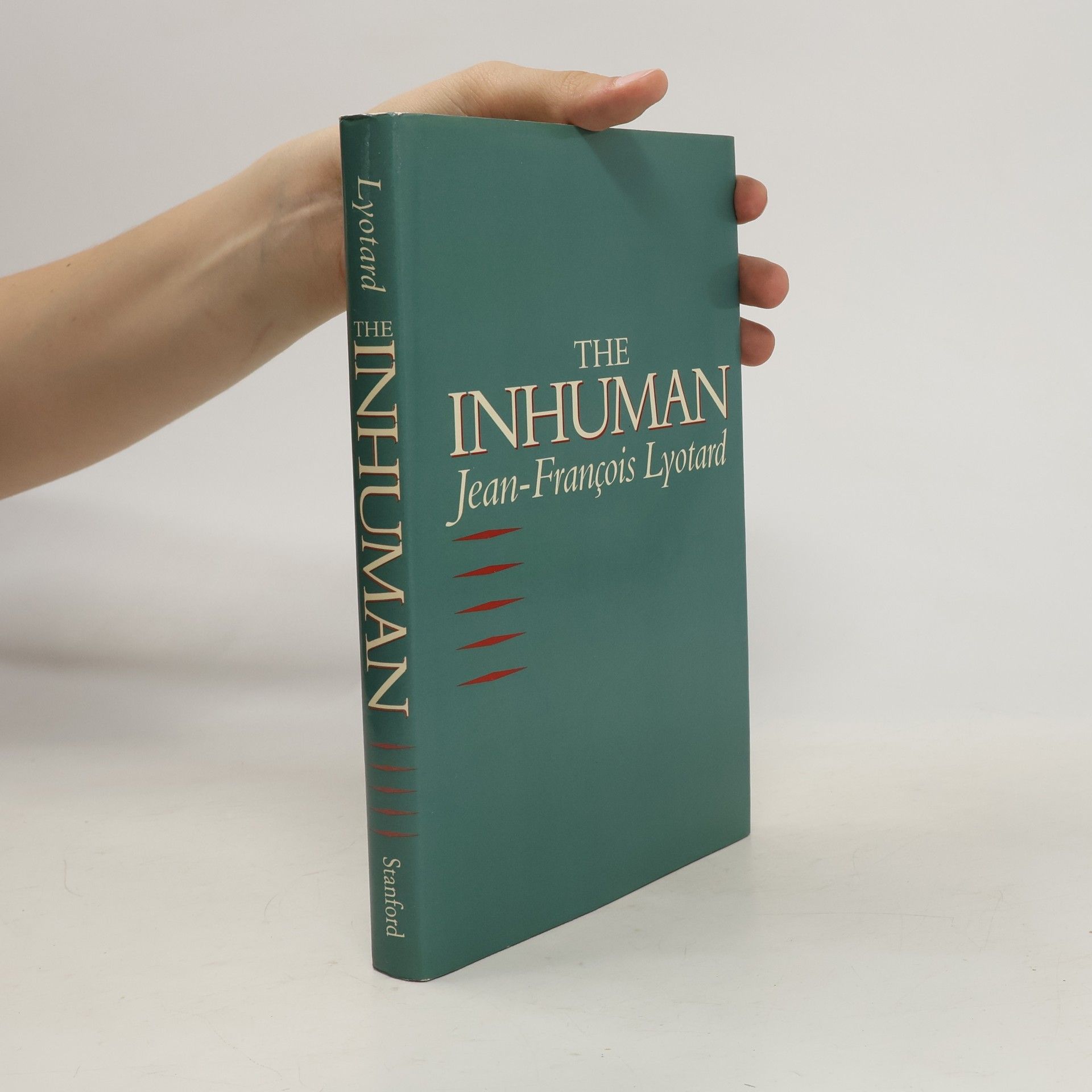
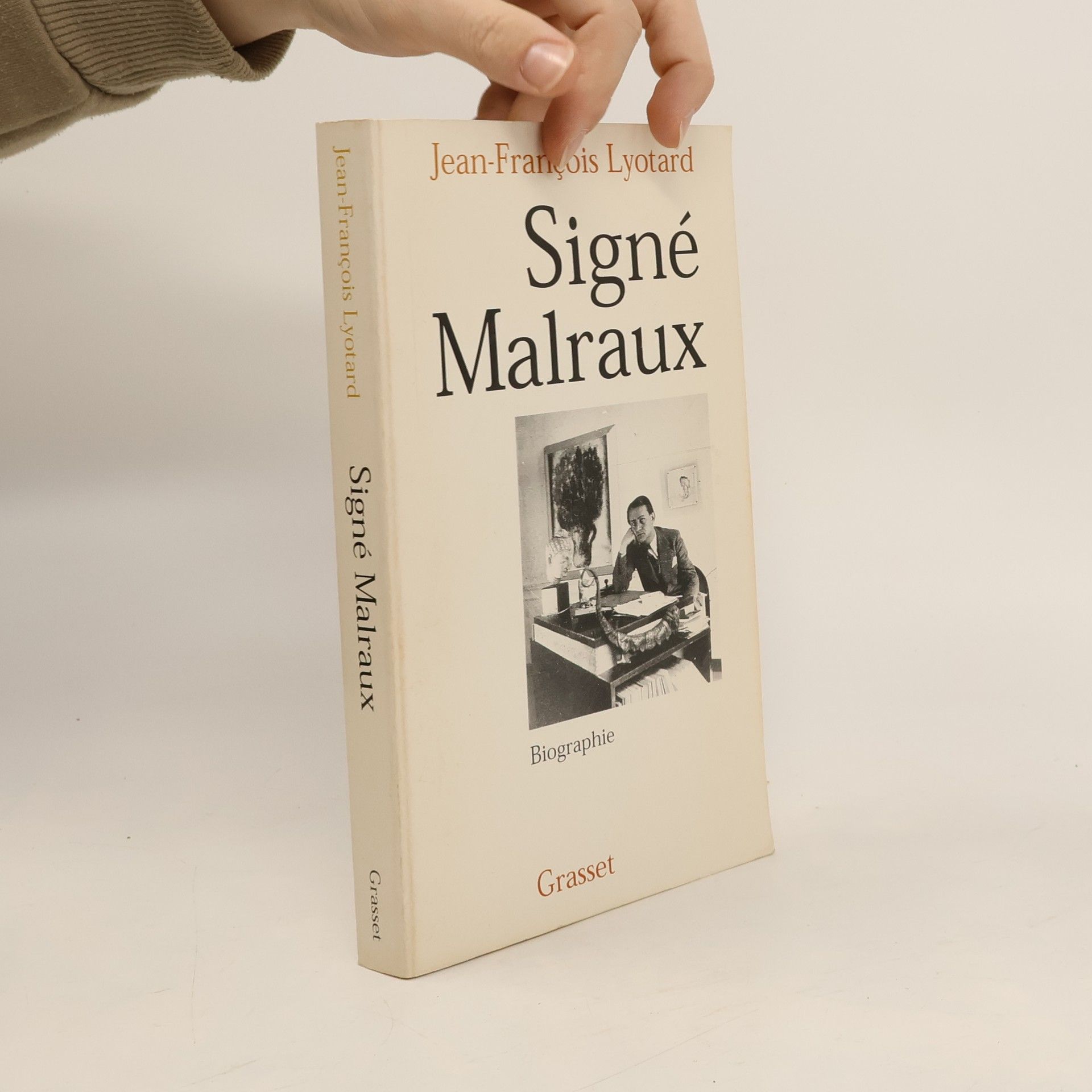
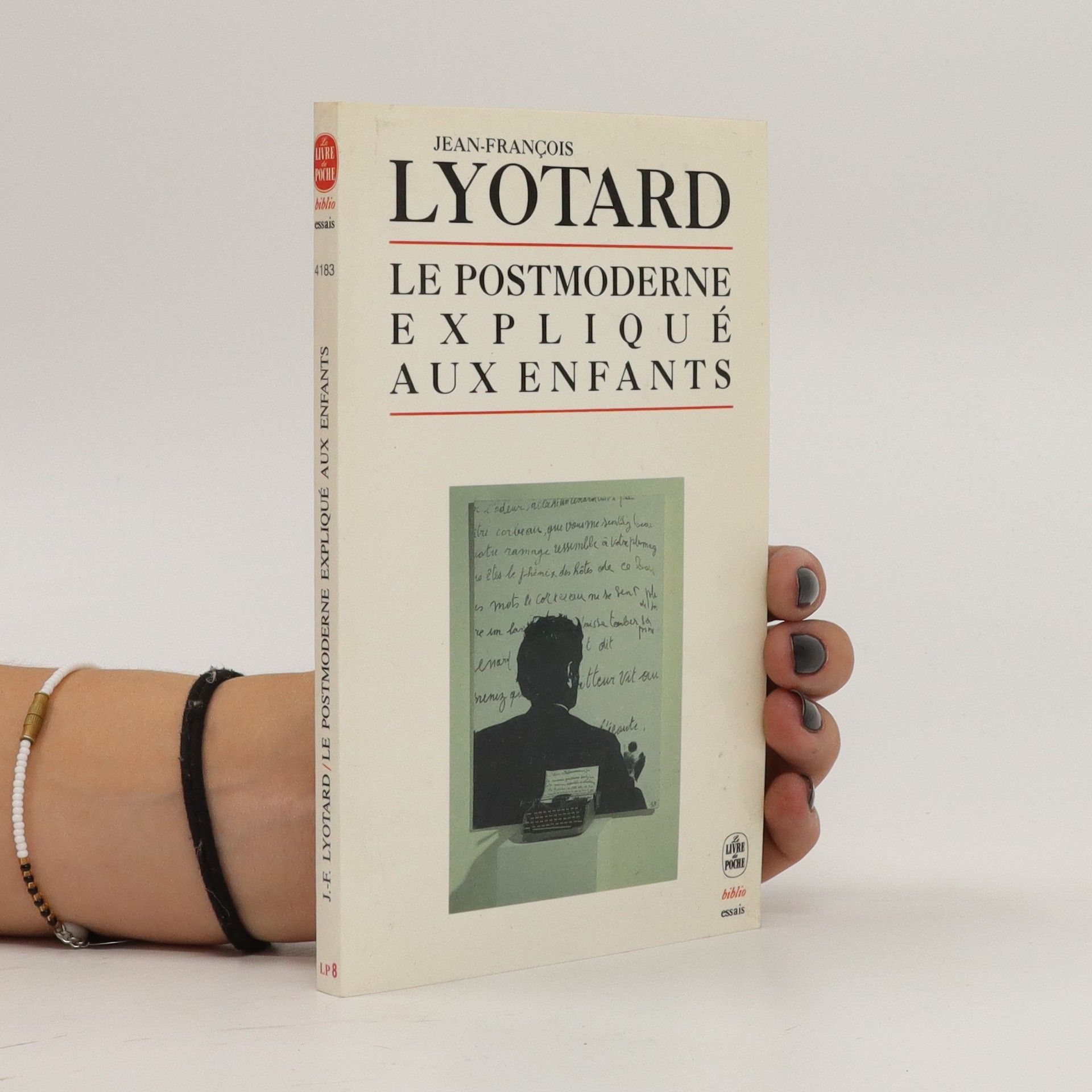
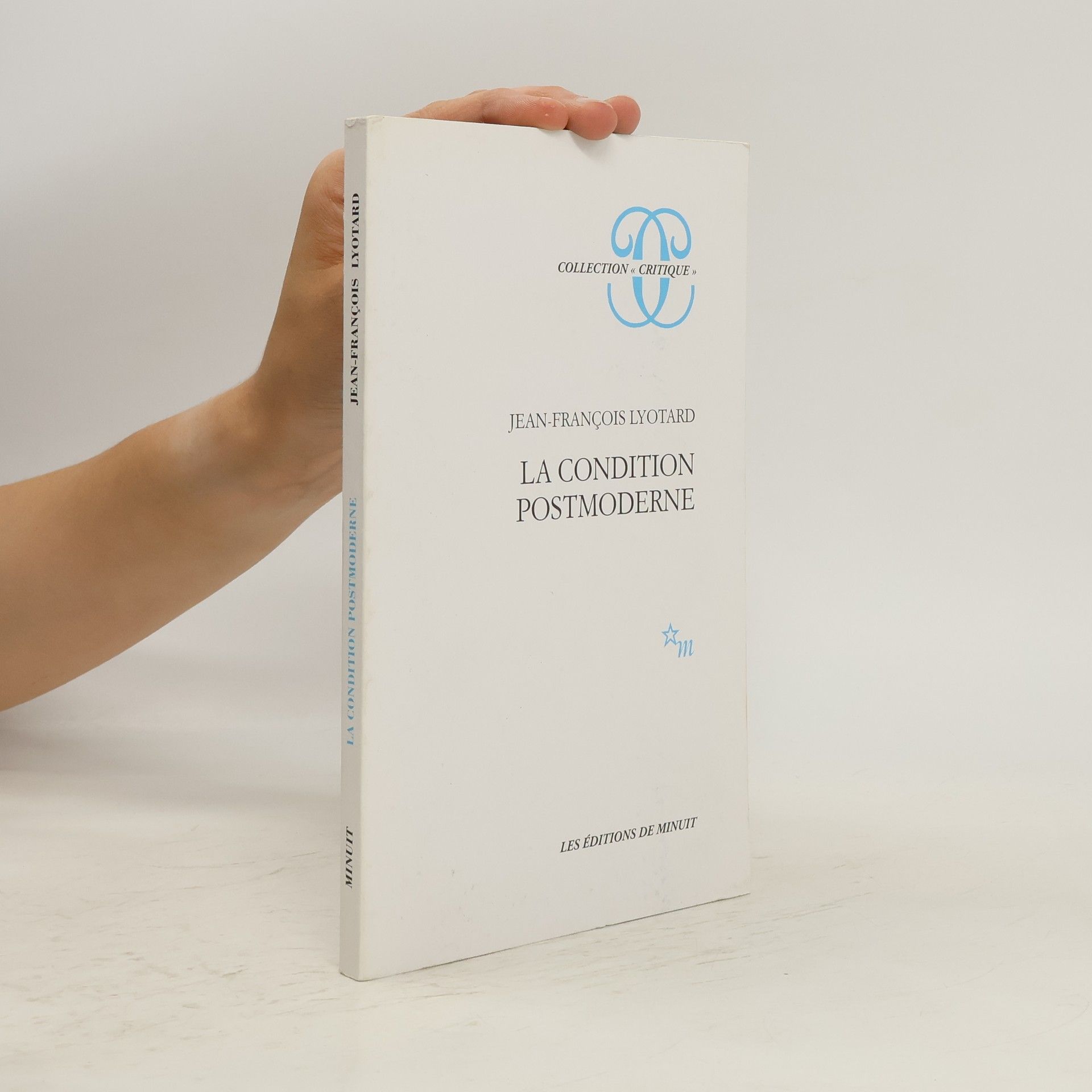

On essaie de faire du Postmoderne un " look ", un " scoop ". Lyotard explique ici qu'il s'agit d'autre chose. Changement dans la perception de l'espace, du temps, de la communauté urbaine, difficiles à localiser. Le Postmoderne ne se situe pas après le moderne, ni contre lui. Il y était déjà inclus, mais caché. Un déclin des idéaux modernes laisse apparaître en eux une autre vie, vie de l'esprit, vie quotidienne incertaine quant à ses fins, et résistante. Le texte des Editions Galilée est daté de 1988-2005. Il a fait l'objet de différentes publications dans la période 1982-86. Son organisation est originale : ce sont des lettres envoyées aux enfants de ses amis philosophes (mais on peut douter que leur contenu soit réellement accessible à des enfants). Sommaire . Avertissement1. Réponse à la question : qu'est-ce que le postmoderne?2. Apostille aux récits3. Missive sur l'histoire universelle4. Mémorandum sur la légitimité5. Dépêche à propos de la confusion des raisons6. Post-scriptum à la terreur et au sublime7. Note sur les sens de "post"8. Billet pour un nouveau décor9. Glose sur la résistance10. Adresse au sujet du cours philosophique
Signé Malraux
- 360pages
- 13 heures de lecture
Une enquête dans laquelle on trouve tous les grands thèmes qui jalonnent la vie et l'oeuvre de Malraux et où, pour la première fois, les ressources de la philosophie et de la psychanalyse sont mobilisées pour la compréhension de ce que l'écrivain lui-même appelait son "misérable petit tas de secrets."
The Inhuman
- 216pages
- 8 heures de lecture
"In a wide-ranging discussion the author examines the philosophy of Kant, Heidegger, Adorno and Derrida and looks at the works of modernist and postmodernist artists such as Cezanne, Debussy and Boulez. Lyotard addresses issues such as time and memory, the sublime and the avant-garde, and the relationship between aesthetics and politics. Throughout his discussion he considers the close but problematic links between modernity, progress and humanity, and the transition to postmodernity. Lyotard claims that it is the task of literature, philosophy and the arts to bear witness to and explain this difficult transition." "This important contribution to aesthetic and philosophical debates will be of great interest to students in philosophy, literary and cultural theory and politics."--BOOK JACKET.Title Summary field provided by Blackwell North America, Inc. All Rights Reserved
Libidinal Economy
- 304pages
- 11 heures de lecture
First published in 1974, Libidinal Economy is a major work of twentieth century continental philosophy. In it, Lyotard develops the idea of economies driven by libidinal 'energies' or 'intensities' which he claims flow through all structures, such as the human body and political or social events. He uses this idea to interpret a diverse range of subjects including political economy, Marxism, sexual politics, semiotics and psychoanalysis. Lyotard also carries out a broad critique of philosophies of desire, as expounded by Deleuze and Guattari, Nietzsche, Bataille, Foucault and de Sade.
In The Differend, Lyotard subjects to scrutiny- from the particular perspective of his notion of 'differend' (difference in the sense of dispute)- the turn of all Western philosophies toward language; the decline of metaphysics; the present intellectual retreat of Marxism; the hopes raised and mostly dashed, by theory; and the growing political despair. Taking his point of departure in an analysis of what Auschwitz meant philosophically, Lyotard attempts to sketch out modes of thought for our present.
This book explores science and technology, makes connections between these epistemic, cultural, and political trends, and develops profound insights into the nature of our post-modernity. Many definitions of postmodernism focus on its nature as the aftermath of the modern industrial age when technology developed. This book extends that analysis to postmodernism by looking at the status of science, technology, and the arts, the significance of technocracy, and the way the flow of information is controlled in the Western world.
Peregrinations Law, Form, Event
The Wellek Library Lectures at the University of California, Irvine
- 124pages
- 5 heures de lecture
Readings in Infancy
- 208pages
- 8 heures de lecture
'Nobody knows how to write'. Thus opens this carefully nuanced and accessible collection of essays by one the most important writer-philosophers of the twentieth century, Jean-Fran ois Lyotard (1924-1998). First published in French, in 1991 as Lectures d'enfance, and investigating Lyotard's idea of infantia, or, the infancy of thought that resists all forms of development, be it human or technological, these essays have never been printed as a collection in English. Each essay responds to works by writers and thinkers who are central to cultural modernism, such as James Joyce; Franz Kafka; Hannah Arendt; Jean-Paul Sartre; and Sigmund Freud. Although published between 1986 and 1991 in several different English publications, the pieces are no longer in print and have been given scant critical attention as a cohesive body of thought. This volume - with a new introduction and afterword by Robert Harvey and Kiff Bamford - contextualises Lyotard's thought and demonstrates his continued relevance today.